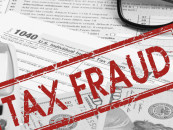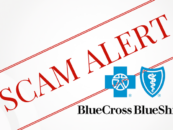Throughout the United States, people unfamiliar with the Consumer Financial Protection Bureau (CFPB) financial marketplace are more likely to fall prey to frauds and schemes. Low English proficiency can make it even harder to manage money safely and effectively on a day-to-day basis. To help, the CFPB has developed a series of guides that provide straightforward information about basic money decisions.
The following “Newcomer’s Guides to Managing Money today” features short tips to help newcomers to the United States navigate how to receive money, open an account, pay bills, and select financial services and products. They also provide information on how to submit a complaint about a problem with a financial product or service.
RELATED: Consumer Financial Protection Bureau Releases Home Loan Toolkit
This guides is part of the CFPB commitment to providing meaningful access to our programs and services to people with limited English proficiency and English language learners.
“Newcomer’s Guides to Managing Money today”:
Beneficiary. Collateral. Debit. Fair market value. These terms might look familiar, but what do they really mean? Now imagine how confusing financial language might sound if you didn’t grow up speaking English. According to recent studies, people with limited English proficiency may be more likely to fall prey to frauds and schemes, and it can be harder to manage money on a day-to-day basis. That’s why we’ve developed the Newcomer’s Guides to Managing Money to provide recent immigrants with straightforward information about basic money decisions.
Each guide features short tips to help new immigrants, and people who may be new to the U.S. banking system, avoid financial pitfalls. The guides also include information on how to submit a complaint if you’re having a problem with a financial product or service.
You can download, post, and share the Web-ready versions of the guides in English and Spanish (more languages coming).
RELATED: New Federal Database Tracks Americans Credit Ratings and Financial Records
Ways to receive your money
Have you received a paycheck but aren’t sure whether to cash it or put it into a bank account? This guide provides information about receiving wages or payments. You can use this guide to compare the benefits and risks of getting paid in cash, with a check, by direct deposit, or on a card.
Checklist for opening an account
If you’re interested in opening a bank or credit union account, you can use this guide and checklist to make sure you have the required paperwork before opening your account.
Ways to pay your bills
Are you trying to decide whether to pay your rent by check or credit card? Take a look at this guide to compare the benefits and risks of paying regular and one-time bills by check or money order, by direct debit, online, or in cash.
Selecting financial products and services
If you’re trying to decide which financial services are right for you, this guide provides information about common transactions, including ATM cash withdrawals and debit card purchases.
These guides are part of the CFPB commitment to provide people who may be new to the U.S. banking system, including people with limited English proficiency, the information they need to make the best financial decisions for themselves and their families.
Check out more materials available in other languages as well as our website in Spanish.
Now, we want to hear from you! Would like to share your opinion or make a comment on the Unlock Your Wealth Radio Show? If so, then please leave your comment or questions in the space provided below and share this article with your friends and family on Facebook and Twitter. Your comments or question could be chosen as our featured Money Question Monday and a phone call by financial expert Heather Wagenhals could dial your way to be live on the Unlock Your Wealth Radio Show.





